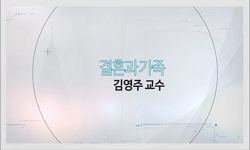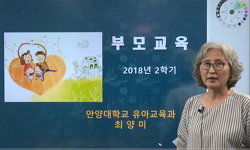Development of Family Parenting Textbooks for Next Generation Mission Jang Inseog Department of Mission and Culture Westminster Graduate School of Theology “Development of Family Parenting Textbooks for Next Generation Mission” began with the conc...
http://chineseinput.net/에서 pinyin(병음)방식으로 중국어를 변환할 수 있습니다.
변환된 중국어를 복사하여 사용하시면 됩니다.
- 中文 을 입력하시려면 zhongwen을 입력하시고 space를누르시면됩니다.
- 北京 을 입력하시려면 beijing을 입력하시고 space를 누르시면 됩니다.
https://www.riss.kr/link?id=T16969744
- 저자
-
발행사항
용인 : 웨스트민스터신학대학원대학교 신학대학원, 2023
-
학위논문사항
학위논문(박사) -- 웨스트민스터신학대학원대학교 신학대학원 , 신학과(박사) 선교와 문화 , 2024. 2
-
발행연도
2023
-
작성언어
한국어
- 주제어
-
발행국(도시)
경기도
-
형태사항
290 ; 26 cm
-
일반주기명
지도교수: 김선일
-
UCI식별코드
I804:11078-200000740903
- 소장기관
-
0
상세조회 -
0
다운로드
부가정보
다국어 초록 (Multilingual Abstract)
Development of Family Parenting Textbooks for Next Generation Mission Jang Inseog Department of Mission and Culture Westminster Graduate School of Theology “Development of Family Parenting Textbooks for Next Generation Mission” began with the concern of how to convey the gospel and pass on faith to children in families. The next generation mission is a crucial challenge that the modern Korean church and Christian households must address. Recently, South Korea has been grappling with severe societal issues of population decline and low birth rates, which have also led to a crisis of decreasing church membership. The decline in church school attendance, especially in various age groups such as infants, elementary, middle school, high school, university, and youth, is particularly alarming. For this reason, new paradigms such as generational integration worship, generational integration education, and whole-generation rearing with the whole family are being suggested as alternatives to ministry. This paper describes the reality within the context of the Korean church, where families themselves, rather than church teachers or pastors, engage in the actual practice of evangelizing and parenting their own families. Specifically, it focuses on addressing the challenges faced by parents who have dedicated themselves to serving as faithful Christians but encounter difficulties in spreading the gospel and passing on their faith to the next generation. Parents need a lot of energy to play that role at home. Parenting is a very active activity that requires a lot of commitment, along with numerous skills such as parenting, conversation, and support. In fact, children respond to actions much better than words. Therefore, in order to be an effective parent, you must be an active parent. Most parents raise their children with a responsive approach. However, parents should take an active approach to their children. Reactive parents endure their children until they push them to a dead end and only react afterwards. So parents end up with frustration, anger, random discipline, or shouting and responding discipline. Parents emotional reactions without taking initiative and active actions, ultimately allow their children to control their emotions and situations. As a result, the problem persists and worsens as parents and children repeatedly encounter frustrating situations. Most parents do not parenting their children in a consistent and unified manner, which is a serious problem. Therefore, parents unwittingly follow the guidance methods used by their parents in the past to their children, or use the exact opposite guidance methods. Or use the guidance methods they heard and learned from friends, books, online searches, or the media poorly. Therefore, parents need an active attitude and attitude to carry out child rearing such as proper discipline, evangelism, and faith transfer to their children. Parents must take on the 'active parental role' in parenting their children. Here, the basic philosophy inherent in the 'active parental role' is that it is the parents, not the children, who will play the leadership role in the family. The family parenting textbook recorded in this paper is a parenting textbook developed for the purpose of next-generation missionary work while I was ministrying. This parenting textbook is largely composed of three themes. The first is a spiritual training topic that helps in training for spiritual growth. The second is the subject of personality training, or character training, that is, character training that is helpful for training necessary to form a basic personality as a human being. The third is the topic of intellectual training that helps in the training necessary to form a worldview centered on the Bible. I hope that the whole family will have a harmonious family by talking and communicating with each other in the process of conducting the family parenting textbook. Through this, we intend to contribute to achieving the wish of family evangelization. And the key terms of this paper are Home, Family, Children, Next Generation Mission, Family Evangelism, Faith Transfer, Family Parenting, Parenting Textbooks, Parent Education, Shema Education, and Shema Mission.
국문 초록 (Abstract)
“다음세대 선교를 위한 가족양육 교재개발”은 가정에서 다음세대인 자녀에게 어떻게 복음을 전파하고 신앙을 전수할 것인가? 라는 고민에서 출발하였다. 다음세대 선교는 현대 한국교회...
“다음세대 선교를 위한 가족양육 교재개발”은 가정에서 다음세대인 자녀에게 어떻게 복음을 전파하고 신앙을 전수할 것인가? 라는 고민에서 출발하였다. 다음세대 선교는 현대 한국교회와 기독교 가정에서 풀어야 할 중요한 과제 중 하나이다. 최근 한국은 인구감소와 저출산의 심각한 사회 문제를 안고 있다. 이런 사회적 현상은 한국교회에도 영향을 끼쳐 교인감소라는 위기로 나타나고 있다. 특히 영유아, 초등부, 중등부, 고등부, 대학부, 청년부 등 교회학교의 감소는 아주 심각할 정도이다. 교회에서 믿음의 어른세대는 참으로 헌신적으로 봉사하는 신실한 그리스도인이다. 그러나 그들의 가정에서 자라나는 다음세대인 자녀에게 복음을 전파하는 것과 신앙을 전수하는 것에는 많은 어려움이 있다. 이런 이유로 온 가족이 함께하는 세대통합예배, 세대통합교육, 전세대양육 등과 같은 새로운 패러다임이 목회의 대안으로 제시되고 있는 현실이다. 이 논문은 이러한 한국교회의 현실 속에서 교회의 교사나 목회자가 아닌 가족이 가족을 전도하고 양육하는 실제를 서술하고 있다. 특별히 먼저 그리스도인이 된 부모가 다음세대인 자녀에게 어떻게 복음을 전파하고 신앙을 전수할 것인가에 대한 대답과 고민에 도움이 되기를 바란다. 부모는 가정에서 그 역할을 감당하는데 엄청난 에너지가 필요하다. 부모역할은 양육과 대화와 지지에 해당하는 수많은 기술과 함께 엄청난 헌신을 요구하는 굉장히 적극적인 활동이다. 사실 자녀는 말보다 행동에 훨씬 잘 반응한다. 그러므로 효과적인 부모가 되려면 적극적으로 행동하는 부모가 되어야 한다. 대부분 부모는 반응적인 접근방식으로 자녀를 양육한다. 그러나 부모는 자녀에 대하여 적극적인 접근방식을 사용해야 한다. 반응적인 부모는 자녀가 부모를 막다른 한계점에 이르도록 몰아붙일 때까지 참고 있다가 그다음에야 반응한다. 그래서 부모는 끝내는 좌절, 분노, 막무가내 훈육 혹은 소리치며 반응하는 훈육하게 된다. 부모가 주도적이고 적극적인 행동을 하지 않고 감정적으로 반응하는 것은 궁극적으로는 자녀가 부모의 감정과 상황을 통제하도록 허용하게 만드는 셈이다. 그 결과 부모와 자녀가 똑같이 반복해서 좌절적인 상황에 부딪힘으로써 문제는 지속되고 또 악화된다. 심각한 문제는 대부분 부모가 일관되고 통일성 있는 방식으로 자녀를 양육하지 않는다는 것이다. 그래서 부모는 자신도 모르게 자신의 부모가 과거에 사용했던 지도방법을 자기 자녀에게 그대로 답습하거나, 정반대의 지도방법을 사용하게 된다. 아니면 친구나 책, 온라인 검색이나 매스컴 등에서 듣고 배운 지도방법을 어설프게 사용한다. 그러므로 부모는 자녀에게 올바른 훈육, 복음전파, 신앙전수 등과 같은 자녀양육을 실행할 수 있는 적극적인 자세와 태도가 필요하다. 부모는 자녀양육에 있어서 ‘적극적인 부모역할’을 감당해야 한다. 여기서 ‘적극적인 부모역할’에 내재 된 기본 철학은 가정 안에서 지도자 역할을 할 사람은 자녀가 아니라 부모라는 것이다. 이 논문에 기록된 가족양육 교재는 필자가 목회하면서 다음세대 선교를 목적으로 개발한 양육교재이다. 이 양육교재는 크게 세 부분의 주제로 되어 있다. 첫째는, 영성 성장을 위한 훈련에 도움이 되는 영성훈련 주제이다. 둘째는, 인간으로서 기본적인 인성을 형성하는데 필요한 훈련에 도움이 되는 인성훈련 즉, 성품훈련 주제이다. 셋째는 성경을 중심으로 하는 세계관 형성에 필요한 훈련에 도움이 되는 지성훈련 주제이다. 온 가족이 가족양육 교재를 진행하는 과정 가운데 서로 대화하고 소통함으로 화목한 가정이 되기를 바란다. 이를 통하여 가족양육 교재가 가족복음화의 소망을 성취하는데 기여하고자 한다.
목차 (Table of Contents)
- 논문개요 ⅴ
- ABSTRACT ⅶ
- 헌사(Dedicaton) ⅹ
- 감사의 글 ⅺ
- 목차 ⅻ
- 논문개요 ⅴ
- ABSTRACT ⅶ
- 헌사(Dedicaton) ⅹ
- 감사의 글 ⅺ
- 목차 ⅻ
- 제 1 장 서론 1
- 제1절 연구의 필요성과 목적 1
- 제2절 연구의 방법과 범위 5
- 제 2 장 선교현장으로서 가정에 대한 이해 6
- 제1절 성경적 가정이해 6
- 1. 구약의 가정이해 6
- 가. 공동체로서의 가정 6
- 나. 구약의 가정에 대한 단어적 의미 7
- 다. 성전으로서의 가정 8
- 라. 신앙전승으로서의 가정 9
- 2. 신약의 가정이해 10
- 가. 상호관계적 가정 10
- 나. 신약의 가정에 대한 단어적 의미 13
- 다. 교회로서의 가정 14
- 라. 신앙교육 현장으로서의 가정 15
- 마. 복음서에 나타난 가족 16
- 바. 서신서에 나타난 가족 19
- 제2절 신학적 가정이해 21
- 1. 기독교 가정의 성경적 배경 21
- 2. 기독교 가정의 정의 23
- 3. 기독교 가정의 목적 23
- 가. 의미있는 예배 24
- 나. 목적있는 관계 24
- 다. 전도와 봉사 25
- 4. 기독교 가정의 사명 25
- 가. 예배의 사명 25
- 나. 교육의 사명 26
- 다. 위로의 사명 26
- 5. 기독교교육 현장으로서의 가정 27
- 제3절 사회적 가정이해 28
- 1. 일반적 가정의 정의 28
- 2. 일반적 가정의 기능 30
- 3. 현대사회 가정의 특징 31
- 4. 현대사회의 특징 32
- 가. 정보화 사회 32
- 나. 다원화 사회 33
- 다. 비인간화 사회 34
- 라. 가치관 변화의 사회 35
- 5. 현대사회의 세대구분 36
- 6. 현대사회의 결혼과 가족 38
- 7. 현대사회의 다양한 가족형태 39
- 가. 한부모가족 40
- 나. 재혼가족 40
- 다. 동거가족 41
- 라. 일인가족 41
- 제 3 장 기독교 가정교육에 대한 이해 43
- 제1절 기독교 가정교육의 의미 43
- 제2절 구약시대 유대인의 가정교육 44
- 1. 유대인 가정, 부모, 자녀 44
- 가. 유대인의 가정 44
- 나. 유대인의 부모 45
- 다. 유대인의 자녀 47
- 2. 가정교육의 목표 49
- 가. 하나님 경외와 신앙전수 49
- 나. 신앙공동체의 결속 50
- 다. 성결교육 51
- 3. 가정교육의 내용 51
- 가. 쉐마 51
- 나. 토라 53
- 다. 탈무드 53
- 4. 가정교육의 방법 54
- 가. 구전 54
- 나. 반복과 암송 55
- 다. 질문과 토론 56
- 라. 참여와 경험 57
- 제3절 신약시대 가정교육의 의미 58
- 제4절 종교개혁시대의 가정교육 61
- 1. 루터의 가정교육관 62
- 2. 칼뱅의 가정교육관 63
- 제5절 청교도시대의 가정교육 64
- 1. 경건한 삶을 추구하는 가정교육 65
- 2. 언약신학에 근거한 가정교육 68
- 제 4 장 가족양육을 통한 다음세대 선교 70
- 제1절 다음세대 양육을 위한 부모교육 70
- 1. 부모교육의 정의 70
- 2. 부모교육의 특성 70
- 3. 성경에 나타난 부모교육 71
- 가. 모세의 어머니 요게벳 72
- 나. 사무엘의 어머니 한나 73
- 다. 삼손의 아버지 마노아 73
- 라. 디모데의 어머니 유니게 74
- 제2절 가족양육에 대한 이해 74
- 1. 가족양육의 정의 74
- 2. 가족양육의 목적 76
- 3. 가족양육의 역할 77
- 제3절 가족전도에 대한 이해 77
- 1. 가족전도의 중요성 77
- 2. 가족전도와 일반전도 79
- 3. 적나라한 가족전도 80
- 제4절 성경의 가족전도 81
- 1. 구약의 가족전도 81
- 2. 신약의 가족전도 81
- 제5절 다음세대 선교를 위한 양육주제 82
- 1. 구약과 신약의 선교 82
- 2. 다음세대 선교를 위한 양육주제 83
- 가. 영성훈련을 통한 양육 84
- (1) 소그룹 가족모임하기 84
- (2) 성경말씀 배우기 85
- (3) 기도 배우기 86
- 나. 인성훈련을 통한 양육 87
- (1) 성품훈련 87
- (2) 예절교육 88
- (가) 인사예절 (나) 식사예절 (다) 언어예절
- 다. 지성훈련을 통한 양육 90
- (1) 세계관 교육 90
- (2) 독서 교육 92
- 제 5 장 다음세대 선교를 위한 가족양육 교재 94
- 제1절 영성훈련을 위한 양육교재 94
- 1. 교재 소개 및 진행순서 94
- 2. 교재 책 제목 및 주제 성경말씀 97
- 3. 양육주제 및 제목 97
- 4. 영성훈련 양육교재(부록) 98
- 제2절 인성훈련을 위한 양육교재 99
- 1. 교재 소개 및 진행순서 99
- 2. 교재 책 제목 및 성경말씀 102
- 3. 양육주제 및 뜻 102
- 4. 인성훈련 양육교재(부록) 103
- 제3절 지성훈련을 위한 양육교재 104
- 1. 교재 소개 및 진행순서 104
- 2. 교재 책 제목 및 성경말씀 107
- 3. 양육제목 및 성경본문 108
- 4. 지성훈련 양육교재(부록) 109
- 제 6 장 결론 110
- 제 7 장 부록 112
- 제1절 영성훈련 양육교재 112
- 제2절 인성훈련 양육교재 137
- 제3절 지성훈련 양육교재 167
- 참고문헌 267












